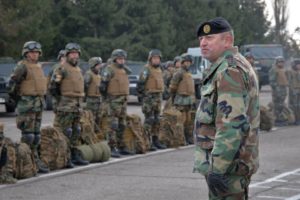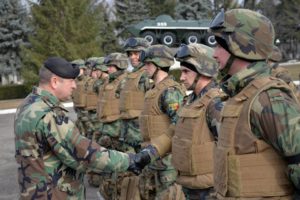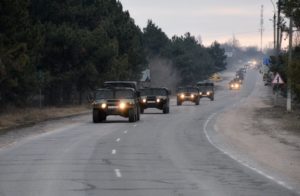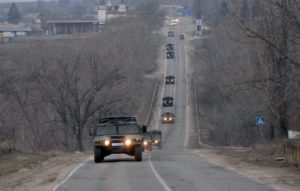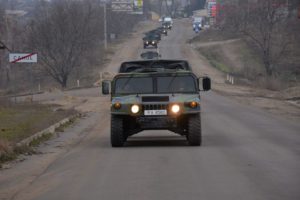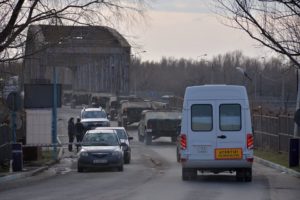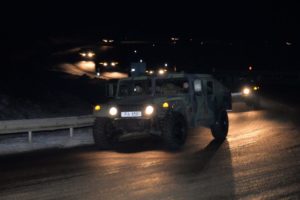Security
60 Moldovan soldiers are participating in Platinum Eagle 18.1 military exercise in Romania
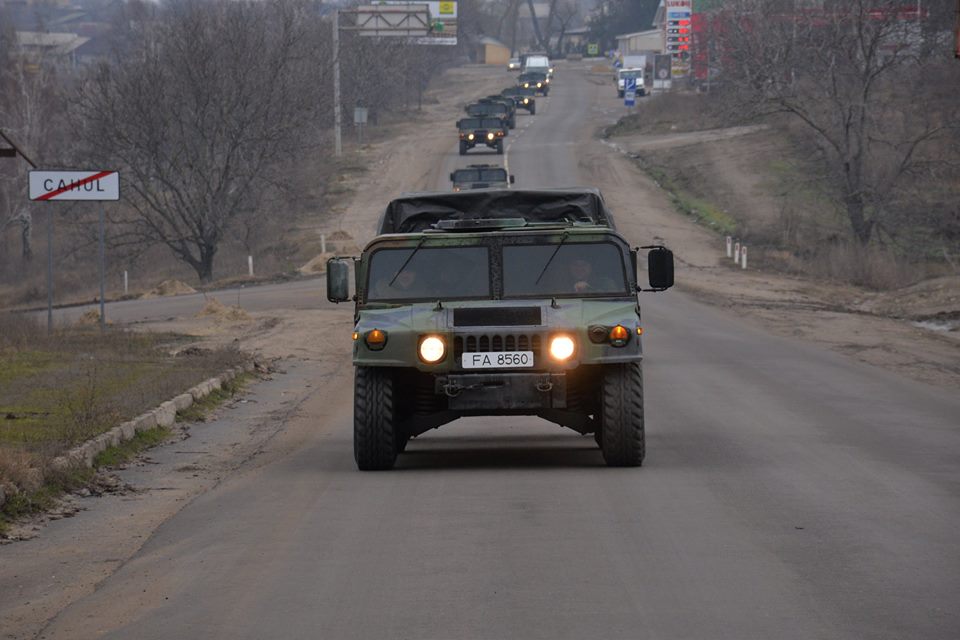
11 February 2018- A contingent of soldiers of Moldova’s National Army is participating during February 11-17th at the international exercise “Platinum Eagle 18.1”, held at Babadag Training Centre, Romania.
60 officers, sub-officers, sergeants and soldiers from the Motorized Infantry Brigade “Dacia” (Cahul) and the 22nd Peacekeeping Battalion (Chișinău) will engage into training together with troops from Bulgaria, Georgia, Romania, Ukraine and the USA. Moldova is going to Platinum Eagle 18.1 with 12 HMMWVs and other military equipment.
The goal of the exercise is to increase the interoperability between the participant troops, maintaining the capacity of joint training, preparing for peacekeeping missions, as well as developing a regional environment favorable for military cooperation. The Moldovan troops will take part in an international group, led by American troops, and will conduct shootings, command procedures and subunit control.
In 2017, Moldova’s President Igor Dodon blocked the participation of the Moldovan National Army in Platinum Eagle 17.1. Dodon motivated the refusal to allow deployment of troops to the joint exercise “Platinum Eagle 2017” with the lack of an approved Defense Minister (Anatol Șalaru was dismissed) and lack of arguments in favor of the participation.
In 2018, Platinum Eagle unites approximately 300 soldiers from Bulgaria, Ukraine, Moldova, Romania and the United States, as part as the Black Sea Rotational Force 18 multinational exercise.
Important
NEPHC declared a Public Health State of Emergency. What does it imply?
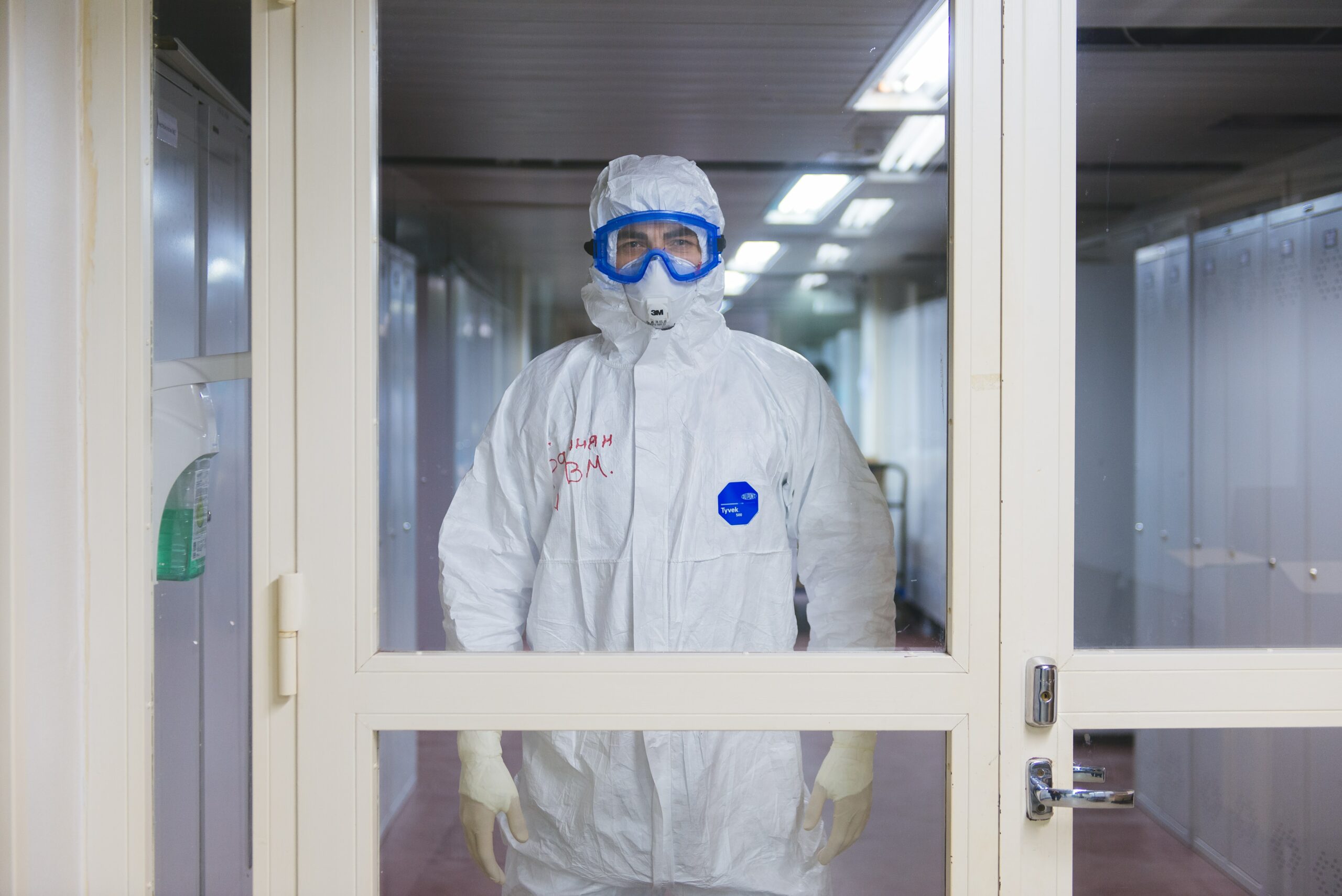
After the spike in daily COVID-19 cases in March-April 2021, a decreasing trend was recorded during this summer. Starting September, the number of confirmed cases went up again to 850 cases on September 7, 790 cases on September 8 and 731 cases on September 9. The average number of confirmed cases increased by 17.0% in the last 2 weeks.
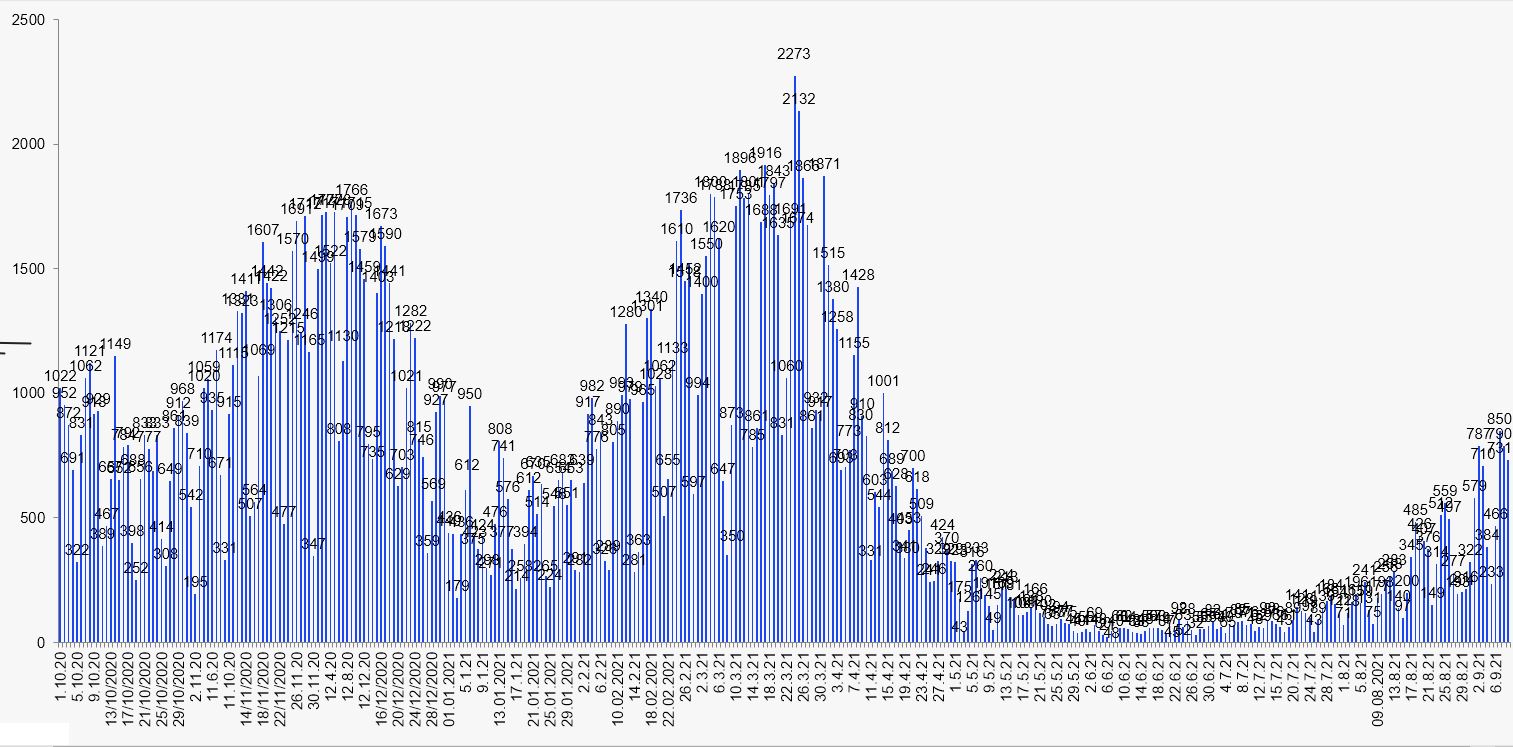
Source: msmps.gov.md
As being mentioned on the national vaccination platform, 1 306 726 doses of vaccine have been administered since the start of the vaccination campaign. The national vaccination rate with one dose is 21.96%, while 20.61% of the population is fully vaccinated.
According to the official statistics provided by the Ministry of Health, 70-85% of people who got infected were not vaccinated. Epidemiologists believe this may be the beginning of a new wave, while Government insists on the imperative to vaccinate as many people as possible.
That is one of the main reasons the National Extraordinary Public Health Commission (NEPHC) declared a new public health state of emergency in the country starting September 10. The institution also established new rules for access to public events and public places.
Therefore, starting September 11, persons over the age of 18 can have access to outdoor events, festivals, cinemas performance halls, concerts, as well as nightclubs with one of the following documents: a vaccination certificate proving they are fully vaccinated, a negative result of a RT-PCR test performed no later than 72 hours in advance, a negative result of a rapid antigen test, which is not older than 48 hours, a confirmatory medical conclusion in the case of persons who have undergone COVID-19 in the last 6 months or a confirmatory act of the presence of anti-COVlD-19 antibodies.
As Minister of Health, Ala Nemerenco, claimed, the pandemic “has an ascending character with a tendency of continuous aggravation.” It is not clear though why the restrictive measures did not affect religious institutions and the food service industry yet, which are two strategic sectors when it comes to controlling the spread of the virus.
Photo: Vladimir Fedotov| Unsplash
Reintegration
Survey// The main threats to Moldova’s security and the resolution to Transnistria’s crisis
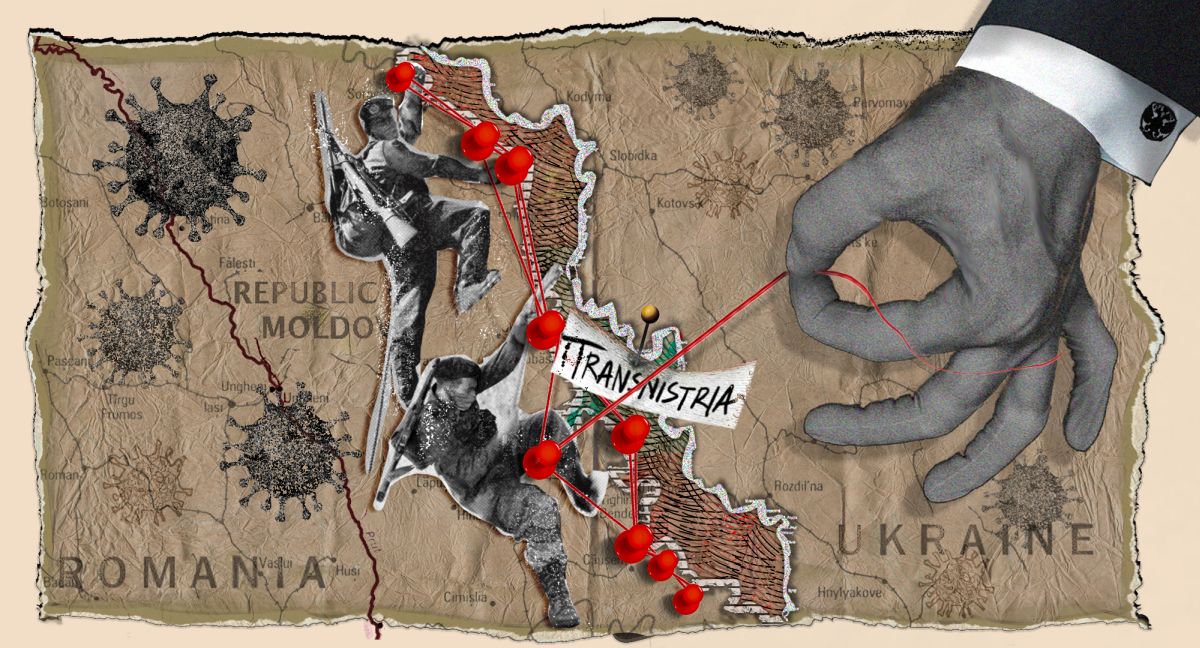
The best option for the Republic of Moldova is to remain independent, a survey conducted by CBS-Research Center for Social Studies and Marketing regarding the population perception of security and defence policy showed. 31.1% of 1 029 involved respondents from 71 localities stated that the best scenario for the country is to remain independent, while 20.6% of them said it should not join any military organisations. Still, 32.3% of respondents see Moldova part of the European Union (EU) in the future.
Most of survey respondents believe that the Moldovan external strategy is focused merely on Europe at the moment (65.1%) and that is the right course of action (49.7%). They think that Moldova’s international cooperation with the EU is fruitful (84.4%), that figure being lower when it comes to such CIS countries as Russia (61.6%) or Belarus (56.2%).
When asked about the entities that would represent the greatest security danger for the country, 24.1% of responding people mentioned Russia, that being more than terrorist groups (20.5%), NATO (10.5%) or the USA (10.2%). On the other hand, in case Moldova faces a security problem, 35.9% consider Romanian an ally, followed by Russia (35.5%) and the European Union (30.8%).
More than half of the respondents (52.9%) said they are interested in information regarding Moldova’s security and defence policy. Their main source of information is TV (66.4%), internet and social media (34.6%) or media outlets (29,2%), but less often official governmental webpages (6.8%).
Transnistria
Only 4% of survey’s respondents believe that Transnistria could be reintegrated into Moldova in the next 10 years. Beside fake news, external propaganda, informational war and disinformation as the main perceived external threats (50.9%), people also mentioned another war with Transnistria (43%) or a war with other countries in the region (31.1%).
When referring specifically to Transnistria’s issues, 42.5% think of high level of crime and smuggling, 39.4% of Russian troops that are stationed in the region, 33.1% – the danger of armed conflicts, 31.9% – obstacles in Moldova’s way to integration into the EU or to general development of the country (27%).
Almost a third of people who answered the survey (29.9%) said that the best solution for the Transnistrian conflict would be the region’s reintegration without granting special status to it. Another 29.6% of respondents said it should be granted similar status to that of Autonomous Territorial Unit of Gagauzia, while 18.6% claimed Transnistria should be independent.
“We do not have such extensive surveys that would measure the perception of citizens towards certain security options, the direction of country’s development in this regard. Civil society could play the role of facilitator between the population and the Government to promote the national interest and transmit some common narratives and strengthen the messages in the direction of security and defence. These results of the study will be a solid basis for the analysis of future prospects of the Republic of Moldova,” claimed Elena Marzac, Executive Director of NATO Information and Documentation Center in Moldova.
See also: Kozak’s visit to Chisinau and Russia’s plan for Transnistria
Photo: Sanja Manakoski / BIRN
Important
Freedom House Report// The level of political rights and civil liberties in Moldova and the Transnistrian region
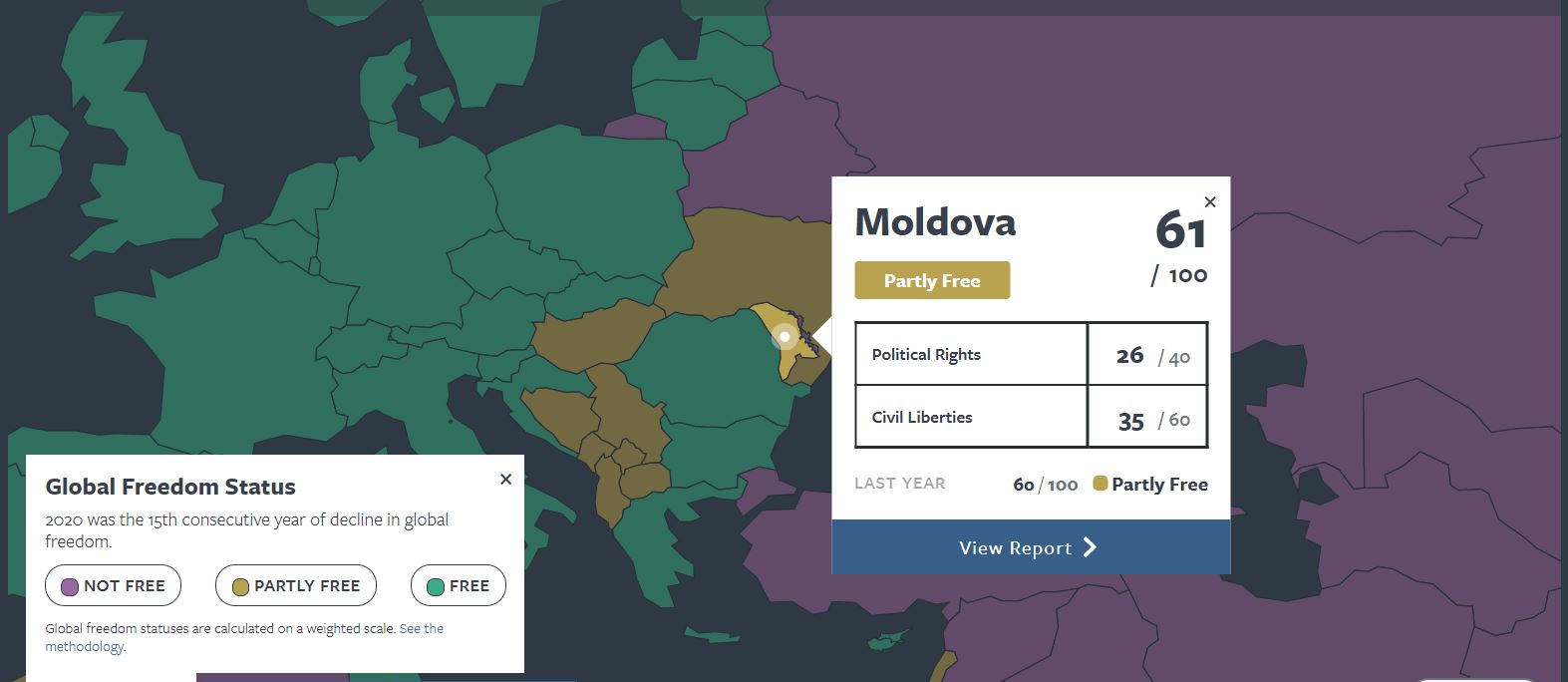
Moldova is a partially free country with a transitional or hybrid democratic regime, says the report Freedom in the World published by Freedom House. The report evaluates the level of political rights and civil liberties in a given geographical area, regardless of whether they are affected by the state, nonstate actors, or foreign powers.
“Moldova has a competitive electoral environment, and freedoms of assembly, speech, and religion are mostly protected. Nonetheless, pervasive corruption in the government sector, links between major political figures and powerful economic interests, as well as critical deficiencies in the justice sector and the rule of law continue to hamper democratic governance,” is emphasized in the report.
In 2020, Moldova gained a score of 61 points out of a maximum of 100, that being 1 point more than a year earlier. The positive aspects mentioned in the report are related to the electoral process. Namely, that the country’s president, Maia Sandu, was elected through free and fair elections, “becoming Moldova’s first female president and defeating incumbent Igor Dodon in a free and fair two-round November election.
“Political processes at the national level were dominated by the PSRM and its informal leader, President Dodon. The latter tried to consolidate power in his hands, but by end of the year, he had failed to recreate a Plahotniuc-style power vertical, as demonstrated by his loss in the presidential election.”
On the other hand, the parliamentary elections from February 2019 were assessed as having “shortcomings including credible allegations of pressure on public employees, indications of vote buying, and abuse of public resources for partisan electoral aims. Outcomes were also affected by limited space for independent media to present alternative viewpoints to voters.” Thus, the current national legislative representatives are considered partially elected through free and fair elections.
Deficiencies were also identified when it came to the fairness of electoral laws and framework, as well as their impartial implementation by the relevant election management bodies. The report authors mentioned the international disapproval for the mixed system introduced in 2017 under conditions of “a lack of inclusive public debate and meaningful consultation with relevant stakeholders and no broad consensus”
Generally, there is a freedom to organize in different political parties in Moldova, as being reported. Still, political party legislation includes restrictions that “disallow regional, municipal, and local parties, as well as parties representing geographically concentrated ethnolinguistic minorities (for example, Gagauzians and Bulgarians).” Moreover, representation of women, people with disabilities, and Roma remains low in political participation, “though women and members of ethnic minorities attain office.” Moreover, “LGBT+ people organize and advocate for equal rights, are discouraged from political engagement due to harassment.”
Opposition parties have a strong presence in Parliament and can gain power through elections, but “oligarchs and business interests strongly influence and corrupt national and local political institutions, undermining political accountability.” Yet after oligarch Vladimir Plahotniuc resigned as PDM head and fled Moldova, “business elites have exerted less control over the state.”
According to the report, “corruption remains entrenched in all levels of government, and existing anticorruption laws are inadequately enforced.”
People in Moldova are generally able to engage in discussions of political nature without fear of retribution, the report states. “Private discussion is generally free and unfettered following the 2019 collapse of the DPM [Democratic Party of Moldova] government.” Also, “freedom of assembly is constitutionally guaranteed and mostly upheld in practice.” Despite the fact that the government limited public gatherings and restricted access to public areas in response to the COVID-19 pandemic, major protests were held during 2020. “In early December, some 20,000 Moldovans demonstrated and called for snap elections after Parliament attempted to strip incoming president Sandu of control over the SIS.”
“Although Moldovan law guarantees property rights, they are undermined by a weak and corrupt judiciary. Widespread corruption affects fair competition and normal business activity. Allies of powerful individuals have been accused of benefiting economically from selective enforcement of business regulations. Some businesses also complained of receiving arbitrary COVID-19-related fines.”
Transnistria
The situation is way more disastrous in the Transnistrian region, which was analysed as a separate territory in the report. It was assessed as a not free territory, gaining a score of only 22 points out of 100 in 2020. According to Freedom House, Transnistria is a “breakaway region of Moldova in which ethnic Russians and Ukrainians together outnumber ethnic Moldovans.” It has a de facto independence since a brief military conflict in 1992, though it is internationally recognized as a part of Moldova.
Transnistrian politics and economy are “heavily dependent on subsidies from Russia.” According to the report, “Transnistria’s entire political establishment, including opposition parties, supports the separatist agenda and Russia’s role as the territory’s foreign patron.” What is worse, “Transnistrian politics have long been built on personal business interests, nepotism, and favouritism.” Political competition is heavily restricted, while the ruling political group “is aligned with powerful local business interests.”
“In addition, the political influence of the Russian government is undergirded by the presence of Russian troops, who are ostensibly stationed in the territory to guard a Soviet-era ammunition depot and, as peacekeepers, to uphold a 1992 cease-fire between Transnistrian and Moldovan forces. Moscow has also financially supported the territory’s pension system and provided subsidized energy.”
The freedom of speech is deeply endangered in the region. “Impartiality and pluralism of opinion in the media is very limited, and authorities closely control civil society activity. […] Critical reporting can result in reprisals including criminal charges, and the government also uses bureaucratic obstruction and withholding of information to inhibit independent journalism.”
Free discussions are discouraged by legal prohibitions related to the defamation or insult of the authorities or public expression of disrespect for the Russian peacekeeping mission. “Speech-related prosecutions of dissidents, activists, and ordinary social media users have become more common in recent years, inhibiting expression by other residents.” Criminal cases, prosecutions, arrests, illegal sentences and imprisonments are continuously occurring in Transnistria.
Freedom of assembly is also tightly restricted. “Authorities consistently reject applications for permits to hold meetings and protests, and participants in unauthorized actions face administrative penalties or criminal prosecution.” During the pandemic period, freedom of movement was substantially reduced, as new checkpoints and travel restrictions were imposed beginning in March 2020.
The most harmful effect on the society is, probably, produced by the judiciary serving the interests of the political authorities and Sheriff Enterprises – the dominating business conglomerate with a huge influence on region’s politics, economy and society. “The European Court of Human Rights has asserted that Moscow is responsible for the decisions of Transnistrian courts, and that these courts do not meet minimum standards of fairness.”
The full report on Transnistria can be found here.
Photo: freedomhouse.org

